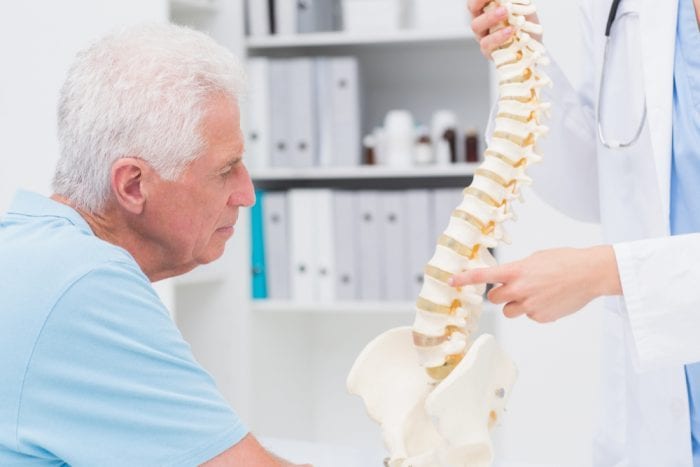This study shows that CBD may enhance bone regeneration and make the skeleton strong.
If you are a young consumer of cannabis, having a strong and dense skeleton may be the last thing on your mind. People in their 20s and 30s rarely think about how their bones could one day be the target of a disease. But, once you begin to creep toward middle age, your bones and the health of your skeleton become a very relevant topic.
The endocannabinoid system (ECS) plays an important role in the maintenance of homeostasis, immune functioning, hormone regulation, and bone strength. The ECS is a system of receptors and endogenous cannabinoids that can be found in tissues throughout the body. Cannabis cannabinoids also fit into these receptors, which explains the incredible versatility of this medicine.
One of the most researched cannabinoids, Cannabidiol (CBD), has been found to trigger bone formation to allow for more quick healing of fractures and improvement in overall bone strength.
Bone Health and Age
As your body matures, things start to deteriorate. This natural part of the aging process includes your bones. The most common disease of bone degeneration is osteoporosis, which occurs when there is an imbalance in bone formation and bone resorption. As a result, the bones become porous and weak, and easily fractured or broken.
Bone health also refers to the strength and wholeness of your bones. Almost everyone has broken or fractured a bone at some point. We all remember it as a lesson in the fragility of the human body. But the frequency of broken bones among humans can make us forget how long-lasting the effects can be. In fact, the point of fracture may be a weak or sensitive spot for life.
Causes of poor bone health include: minimal load-bearing exercise, nutrient-deficient diets, a sedentary lifestyle, vitamin D or C deficiency, lack of adequate phosphate, and hormonal changes at menopause.

How To Keep a Strong Skeleton?
Heavy lifting and medium impact exercise contribute to the development of bone strength. But, that’s not all – cannabinoids, such as CBD and THC, can trigger the endocannabinoid receptors (CB1 and CB2) that encourage bone formation and healing. When activated, CB1 regulates the factors of bone health. These include formation, resorption, fat content, mineral deposition and, therefore, contributes to the development or prevention of osteoporosis.
In addition, the triggering of CB2 receptors assists with how the body repairs the skeleton (bone remodelling). This is the lifelong process of getting rid of old bone tissue and regenerating new. A 2015 study published in The Journal of Bone and Mineral Research demonstrated that CBD greatly enhanced this biochemical process of healing in rats with femur fractures. Scientists accomplished this by triggering bone formation and strengthening the tissues connecting bones.
The research is significant. The experiment employed statistically relevant controls, and was overseen by 18 scientists from all over the world.
Skeleton fractures heal by a process called “callous formation.” This involves the creation of cross-bridges from new bone cell formation. Scientists administered CBD and THC. The rats who had it experienced increased callous formation (size). The control rats did not experience this increase.
We still need more research into cannabis and skeleton health. Still, those at high risk of bone deterioration or patients already diagnosed with osteoporosis may benefit from regular cannabis use.


